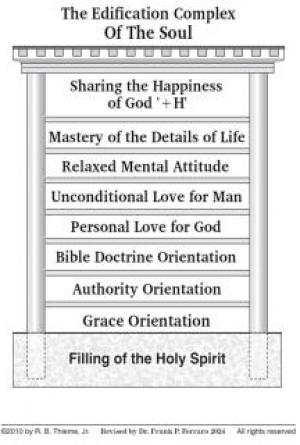To the Church of Laodicea
History
Laodicea was located about 100 miles east of Ephesus, which was the first city that was sent a letter. Laodicea was part of the tri-city area that included Colossae and Hierapolis. The city was founded around 261-253 BC by Antiochus the II who was a Seleucid king who ruled Syria after the death of Alexander the Great, and he named after his wife Laodice. Eventually Laodicea became a part of the kingdom of Pergamum and the Roman Empire, and it was located in the fertile Lycus valley on a flat-topped mountain. Even though at first it was a nothing little town, it later grew and became known as the “gateway to Phrygia”. In addition, because of its location caravans from the east and the west would stop in Laodicea, which helped it to become extremely wealthy because of the cross trading it provided.
The city of Laodicea was known for its commercial life, medical practices, its wealth, and it was also the banking center of Asia which made it the most prosperous of the seven cities and in the ruins of Laodicea there are many beautiful homes that are still visible. There was also a particular breed of black sheep that was raised in the area, and its unique glossy black wool was woven into special clothes. The city of Laodicea was like a bank, department store, and hospital all rolled into one and there was a medical cult of Aesculapius located in Laodicea that was known for their eye and ear salve. Laodicea was so prosperous that when the town suffered a great quake in A.D. 66 it was able to rebuild the city without applying Roman Money to do so. An interesting point is that the symbol of a snake wrapped around a staff that was the symbol of the medical cult in Laodicea is still worn by doctors in the U.S. military today. Paul understood the temptations of the Church of Laodicea, and took a deep interest in it by understanding their enticement due to their intellectual pride and their worldly prosperity. However, John’s letter had a totally different tone.
To the Church at Laodicea Write:
14) And unto the angel of the church of the Laodiceans write; these things saith the Amen, the faithful and true witness, the beginning of the creation of God;
15) I know thy works, that thou art neither cold nor hot: I would thou wert cold or hot.
16) So then because thou art lukewarm, and neither cold nor hot, I will spue thee out of my mouth.
17) Because thou sayest, I am rich, and increased with goods, and have need of nothing; and knowest not that thou art wretched, and miserable, and poor, and blind, and naked:
18) I counsel thee to buy of me gold tried in the fire, that thou mayest be rich; and white raiment, that thou mayest be clothed, and that the shame of thy nakedness do not appear; and anoint thine eyes with eyesalve, that thou mayest see.
19) As many as I love, I rebuke and chasten: be zealous therefore, and repent.
20) Behold, I stand at the door, and knock: if any man hear my voice, and open the door, I will come in to him, and will sup with him, and he with me.
21) To him that overcometh will I grant to sit with me in my throne, even as I also overcame, and am set down with my Father in his throne.
22) He that hath an ear, let him hear what the Spirit saith unto the churches.
Chapter 3 Verse 14
In this verse Jesus refers to Himself as the “Amen”. Amen is a Hebrew word that can be used in the context of “firm” or “trustworthy”, which means that Jesus may have been trying to tell the Church of Laodicea (and us) that Jesus is the only firm and trustworthy person that they (we) should be relying on. In addition, the word Amen is also used to end prayer (so be it). Since Jesus is also called the Alpha and Omega then Jesus being called Amen brings to light that he fulfilled all scriptures that was ever written concerning the Messiah. Next we see that Jesus tells them that HE is the faithful and true witness which lets them (us) know that he is always faithful to (even when we are not), and that he is the author of truth (I am the way, the ‘truth’, and the life). We must always remember that Jesus proved himself faithful to the Father in all he said and did so now because of that the Father has put him in charge of all things. Finally he tells them that he is the “beginning of the creation of God”, which means that he was the creator of all things which establishes that by him all things were made, and without him was not anything made that was made (John 1:3). All these titles show us that Jesus is the Author and Finisher of our faith, and it is to him and him only that we should cling to which apparently the Church of Laodicea did not do.
Chapter 3 Verse 15-16
The Laodicean Church is the first church where Jesus goes straight into a rebuke without any commendation at all. He tells them that he KNOWS that they are neither cold nor hot, and that He wished that they were either cold or hot. The word cold here means “sluggish” or “destitute of warm Christian faith and the desire for holiness”. Or in other words they no longer care about doing and being what Jesus had called them to be (1 Peter 1:15-17). In contradiction the word hot means “boiling hot” or “fervent in spirit and zeal for what is good”. In other word







